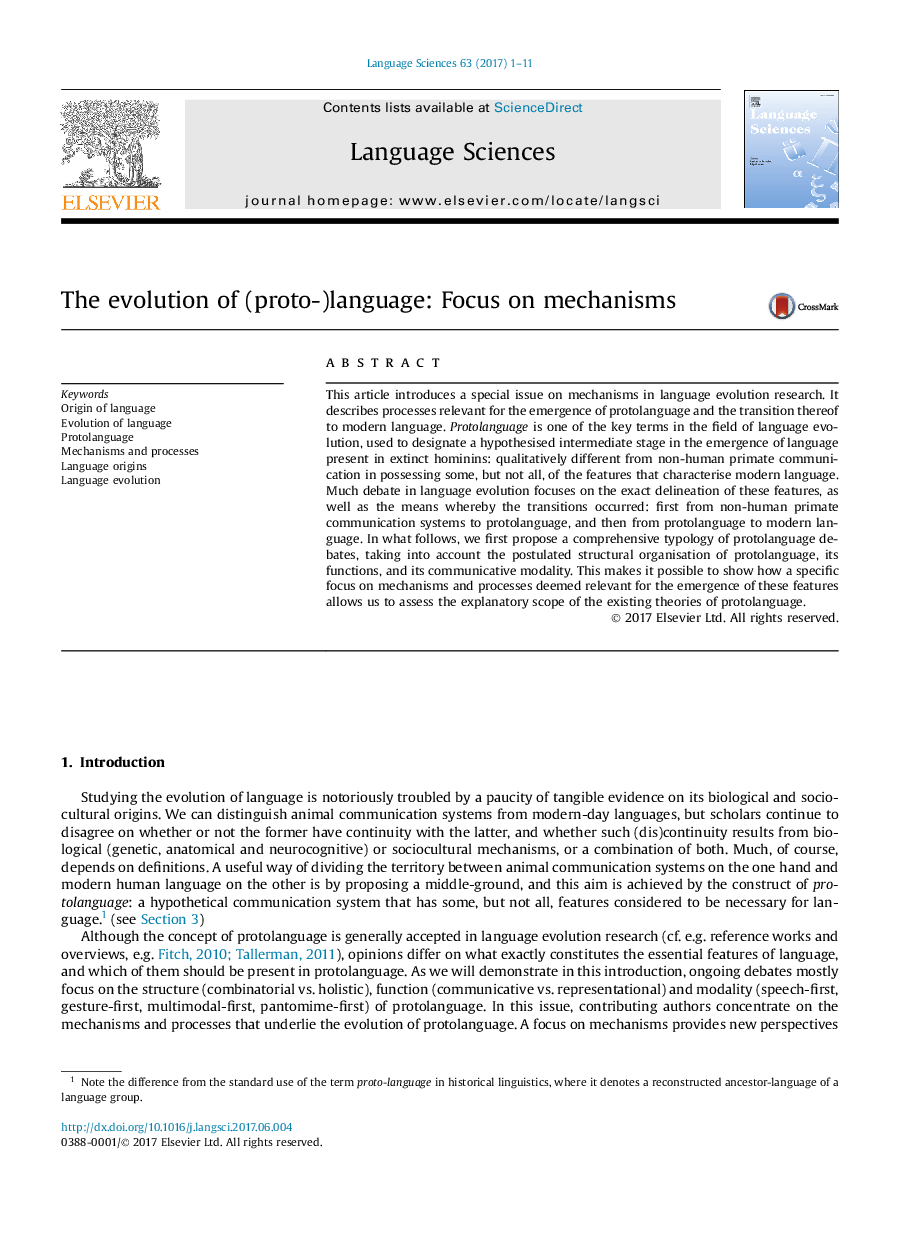| Article ID | Journal | Published Year | Pages | File Type |
|---|---|---|---|---|
| 5124532 | Language Sciences | 2017 | 11 Pages |
This article introduces a special issue on mechanisms in language evolution research. It describes processes relevant for the emergence of protolanguage and the transition thereof to modern language. Protolanguage is one of the key terms in the field of language evolution, used to designate a hypothesised intermediate stage in the emergence of language present in extinct hominins: qualitatively different from non-human primate communication in possessing some, but not all, of the features that characterise modern language. Much debate in language evolution focuses on the exact delineation of these features, as well as the means whereby the transitions occurred: first from non-human primate communication systems to protolanguage, and then from protolanguage to modern language. In what follows, we first propose a comprehensive typology of protolanguage debates, taking into account the postulated structural organisation of protolanguage, its functions, and its communicative modality. This makes it possible to show how a specific focus on mechanisms and processes deemed relevant for the emergence of these features allows us to assess the explanatory scope of the existing theories of protolanguage.
